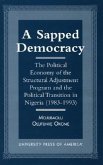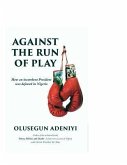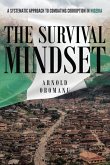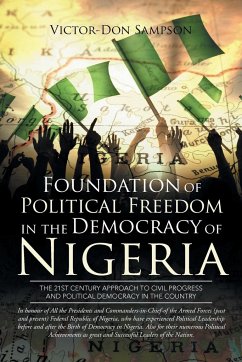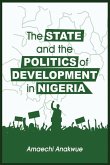"The Political Economy of Modern Nigeria" is the second book of the Series, The Nigerian Political Economy: History, Structure, and Pathways to Development by the author. This book explains Nigeria's structural transformation, institutional development, and the critical role of social capital networks in shaping the country's political and economic landscape. Drawing from a detailed review of the contemporary literature and data, the author explains how ethnic, religious, and business networks influence Nigeria's political economy, from the location and localizations of businesses to the electoral configuration, budgeting, and overall development patterns. Summarily, the overwhelming influences of ethnic and religious cleavages and networks have influenced business networks and electoral processes such that rather than become and remain patriotic to Nigeria as a nation-state, most Nigerians prioritize their religious and ethnic associations and business networks over patriotic national interests. This development has supported the rise and blossoming of fragmented business and political networks that influence how business is done and politics played: who is awarded contracts, which projects are executed and where they are located, who wins elections, and who gets punished for offense or allowed to go free. The business networks and value chains formed by the ethnic and religious alliances have supported the rise of some Nigerians to enormous wealth and political influence but portend a high risk of exclusivity, promoting a zero-sum game scenario where the insiders do very well at the detriment of a larger population of impoverished outsiders. The author argues, however, that fragmented business and political networks can be leveraged for inclusive economic growth by strengthening institutional capacity, promoting e-governance, and improving resource management. However, for this to work, the political leaders must step out of the religious and ethnic enclaves that brought them to power to become truly nationalistic. Having the courage and political will to rebel against the exclusivist business and political networks that shot them to power will be very difficult, but not impossible, for a visionary president, governors, and legislators who realize that an inclusively developed Nigerian political economy is a Pareto-improvement, beneficial to all citizens regardless of ethnic and religious orientation. This book is useful to everyone interested in understanding the political economy of development as a student, researcher, policymaker, business leader, elected and appointed official, or just an enthusiast of Nigeria's development. It offers a detailed roadmap for sustainable development in Africa's largest economy.
Hinweis: Dieser Artikel kann nur an eine deutsche Lieferadresse ausgeliefert werden.
Hinweis: Dieser Artikel kann nur an eine deutsche Lieferadresse ausgeliefert werden.


